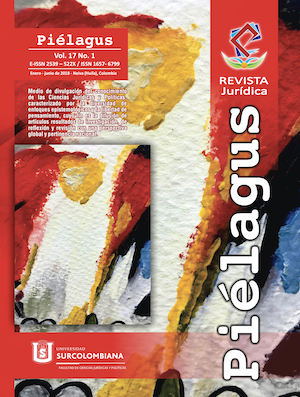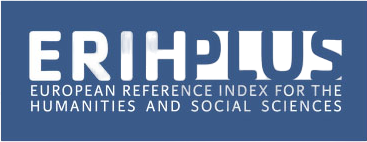Proposals for an institutional reform within the European Union: A look between United States and the State Union
##plugins.themes.bootstrap3.article.main##
The European Union, created -in its previous versions- by the Treaties of Paris (1951) and Rome (1957), represents the initiative of greatest regional integration known up to now. Unlike other projects, its level of integration is advanced, but at the same time irregular. In the project, priority has been given to economic field rather than political ones. At the present time, the EU is at a crossroads: moving towards a more federal path (giving more powers to the Commission and Parliament), or maintaining the predominant intergovernmental dynamics so far (based on the relevant role, also in the legislative, of the Council). This paper tries to define the European Union and analyze the different integration paths that are presented, as well as the different proposals that have recently been presented supporting one or the other.
Downloads
##plugins.themes.bootstrap3.article.details##
Ajenjo N. y Stavridis S. “La Asamblea Parlamentaria EUROLAT: ¿Un modelo de relación entre bloques de integración regional? Working paper #31 Programa América Latina. Centro Argentino de Estudios Internacionales
Anderson P. y Keil S. “Minority nationalism and the European Union. The cases of Scotland and Catalonia”. L´Europe en formation nº 379, 2016.
Arahuetes, A. y Gómez Bengoechea, G., Debt mutualisation, inflation and populism in the Eurozone, ARI 45/2018, Real Instituto Elcano, Madrid, 2018.
Barón Crespo, E. (2014). La era del federalismo. Barcelona, España: RBA.
Beck, U. (1998). ¿Qué es la globalización? Barcelona, España: Paidós.
Blanco, F. (2014). La economía socialdemócrata. Crisis y globalización. Madrid, España: Tecnos.
Cámara Villar, G. “La Unión Europea necesita transitar hacia el federalismo”. Revista Direito Público. IDP (Instituto Brasiliense de Dereito Público) nº 54, Nov-Dez 2013.
Cederman, L.E. (2001). "Nationalism and Bounded Integration: What it would take to construct a European demos", European Journal of International Relations 7 (2). pp. 139-174.
Colomina, C. “Reformar la Unión Europea en 2018: cinco propuestas, cinco voluntades políticas”. En Notes Internacionals, n. 187, febrero 2018. Barcelona, España: CIDOB.
De Areilza, J.M. “Retos institucionales en el desarrollo de una unión política”, en Revista de Derecho Constitucional Europeo, n. 26, julio-diciembre 2016. Granada, España: Universidad de Granada.
Del Río, S. “Iniciativas institucionales a favor de una democracia sólida y participativa”. Real Instituto Elcano, ARI 44/2018.
Enzensberger, H. M. (2014). El gentil monstruo de Bruselas. Barcelona, España: Anagrama.
Fernández, J. (2013). Una alternativa progresista. Barcelona, España: Deusto.
Habermas, J. (2012). La constitución de Europa. Madrid, España: Trotta.
Held, D. y Mcgrew, A. (2003). Globalización/Antiglobalización. Sobre la reconstrucción del orden mundial. Barcelona, España: Paidós.
Innerarity, D. "Does Europe need a demos to be a truly democratic?". London School of Economics, nº 77/2014.
López Garrido, D. (2014). La Edad de Hielo. Europa y Estados Unidos ante la Gran Crisis: el rescate del Estado del Bienestar. Barcelona, España: RBA.
Medina Ortega, M. (2014). El derecho de secesión en la Unión Europea. Madrid, España: Marcial Pons.
Ruipérez, J. (2002). La «Constitución Europea» y la teoría del poder constituyente. Madrid, España: Biblioteca Nueva.
Rodríguez-Aguilera, C. (2015). El déficit democrático europeo. Madrid, España: Catarata.
Scharpf, F.W. “Legitimacy Intermediation in the Multilevel European Polity and Its Collapse in the Euro Crisis”. MPIfG Discussion Paper, 12/6, 2012.
Steiner, G. (2005). La idea de Europa, Biblioteca de Ensayo Siruela. Madrid, España
Toda, David., La sentencia del Tribunal Constitucional Federal de Alemania sobre las “OUTRIGHT MONETARY TRANSACTIONS”, en Revista General de Derecho Constitucional, n. 24, 2017, pp. 38-41.
Torreblanca, J. I. (2014). ¿Quién gobierna en Europa? Madrid, España: Catarata.
Weiler, J. “The Constitution of Europe”, Cambridge University Press, 1999.

















